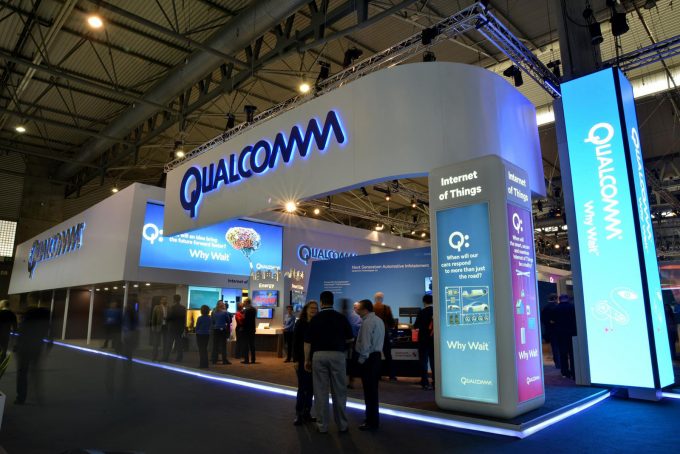- Qualcomm Launches Snapdragon 4 Gen 2 Mobile Platform
- AMD Launches Ryzen PRO 7000 Series Mobile & Desktop Platform
- Intel Launches Sleek Single-Slot Arc Pro A60 Workstation Graphics Card
- NVIDIA Announces Latest Ada Lovelace Additions: GeForce RTX 4060 Ti & RTX 4060
- Maxon Redshift With AMD Radeon GPU Rendering Support Now Available
As Doubt Surrounding Qualcomm Deal Grows, Broadcom Tries To Woo US With $1.5B Pledge
It’s been an extremely busy couple of months for both Qualcomm and Broadcom, as the latter continues to pursue a hostile takeover. Earlier this week, Qualcomm (NASDAQ: QCOM) announced that its annual shareholders meeting would be pushed back to April 5, as the US Committee on Foreign Investment decided to spend some time analyzing the potential deal, to make sure there are no major drawbacks.
Ultimately, the CFIUS will look at the deal from a national security standpoint. Qualcomm’s native land is the US, and it’s currently one of the biggest innovators in the industry. It’s pushing tech forward, whereas Broadcom (NASDAQ: AVGO) has always been about doing things as cheaply as possible, maximizing potential return. It’s not an R&D powerhouse like Qualcomm is.
That being said, Broadcom has a big stake in 5G just as Qualcomm does, but with combined efforts, there’d be overlap, and of course redundancies. Further, the risk of lagging behind international competition would become a greater reality when two companies become one. That’s led Broadcom to assure the US government that it will continue to invest in 5G technologies inside of the country, stating: “Broadcom will not only maintain the R&D resources Qualcomm devotes to 5G and innovation in future wireless standards – we will also focus R&D spend to those critical technologies that are essential to the U.S.”
That promise extends to an idea of establishing a $1.5 billion fund that focuses on the progression of technology inside of the US by educating the next generation of engineers. Qualcomm has remained quiet since these comments.
At this point, it doesn’t seem like many outside of Broadcom feel like this is a deal that should be pursued. Some believe Broadcom should save face, and that right now is the right time to do so. Shrout Research’s principal analyst Ryan Shrout writes for MarketWatch: “CEO Hock Tan will be able to save face by pointing fingers at the U.S. government’s intervention rather than a lack of business acumen being blamed for the failed acquisition.”
Broadcom may find itself to be in so deep at this point, that it may want to continue behaving like it has a real chance at this deal. Broadcom may have a major presence in the US (San Jose, to be exact), but the company is still based in Singapore, and given the very different ways Broadcom and Qualcomm run their business, it seems safer for everyone to keep things as they are. The longer this goes on before a likely collapse, the more damage could be done.





